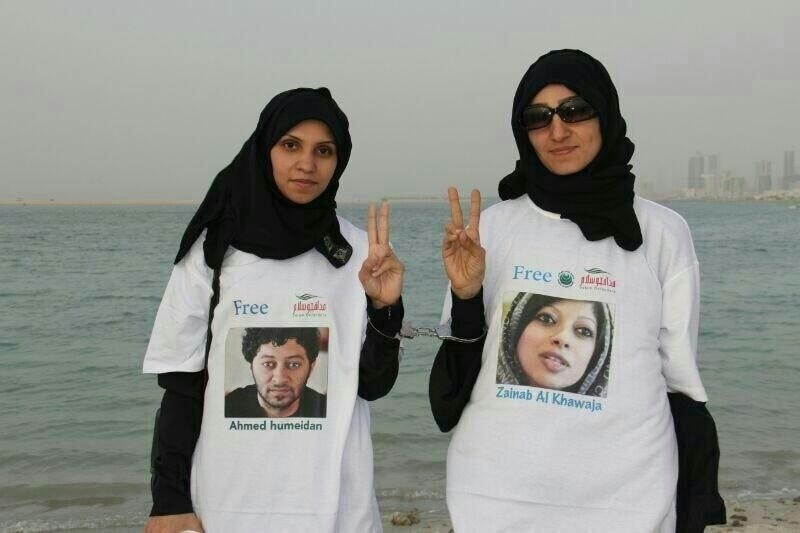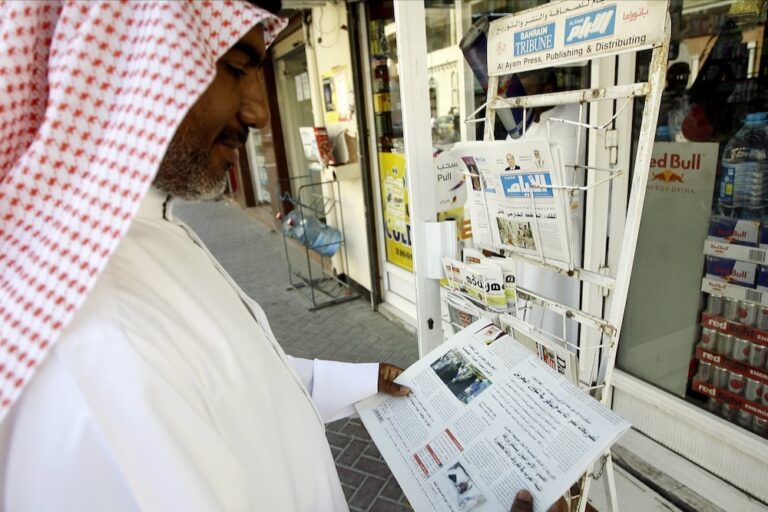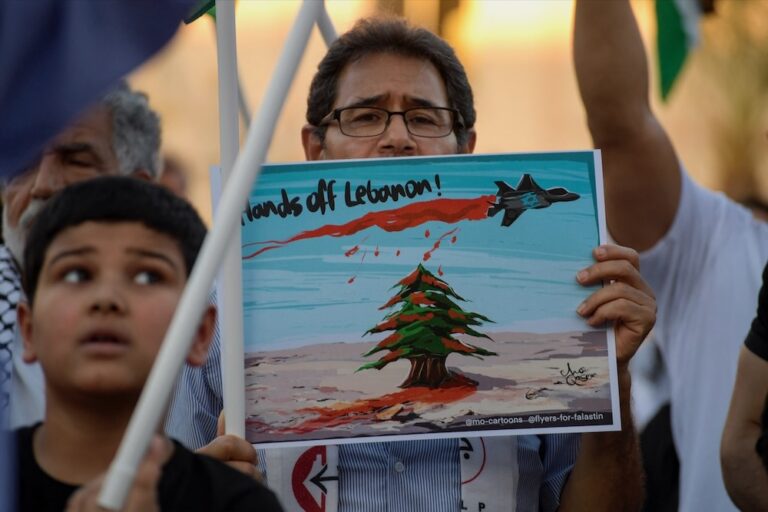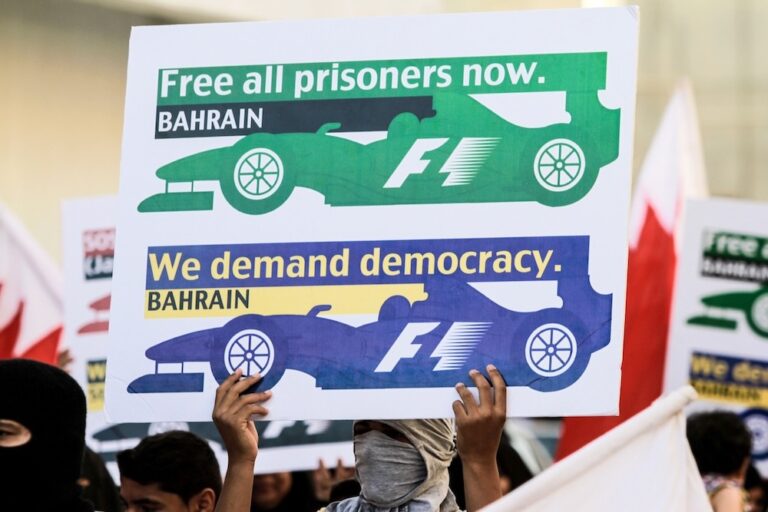Since late April, 2013, in separate cases, security officials have allegedly tortured a prominent rights activist and a woman arrested for protesting the Formula 1 grand prix race in April.
Bahraini authorities should immediately investigate allegations that officials are torturing activists in detention, Human Rights Watch said today. The authorities should ensure that no evidence secured by torture is used against detainees.
Since late April, 2013, in separate cases, security officials have allegedly tortured a prominent rights activist and a woman arrested for protesting the Formula 1 grand prix race in April, including with electric shocks, and forced them to sign confessions. The allegations emerged two weeks after the Bahraini authorities indefinitely postponed the visit of the United Nations (UN) special rapporteur on torture, Juan Mendez. The Bahrain Independent Commission of Inquiry report, issued in November 2011, concluded that five people detained in connection with protests earlier in 2011 had died as a result of torture in custody.
“If the latest allegations are brushed aside it will be yet more evidence suggesting that Bahrain’s justice system is a haven for torturers,” said Sarah Leah Whitson, Middle East director at Human Rights Watch. “Bahrain’s allies should apply serious pressure on Bahrain to investigate and hold accountable anyone responsible for brutally torturing activists.”
The Bahraini authorities should ensure an independent and impartial investigation into all allegations of torture and mistreatment and grant immediate and unconditional access to the UN special rapporteur on torture, Human Rights Watch said.
At 3:30 a.m. on May 2, 12 masked police officers in civilian clothes forced their way into the home of Naji Fateel, a prominent local rights activist, in the town of Bani Jamra, local sources told Human Rights Watch. The officers searched the house and confiscated Fateel’s wife’s camera and his daughter’s laptop, and then took Fateel away. Fateel called his family on the evening of May 4 and told them that he was in Dry Dock prison, where the Bahrain Independent Commission of Inquiry concluded that three people died as a result of mistreatment in 2011.
Fateel told rights activists in Bahrain by phone that he was badly tortured during his first three days there. Fateel said that authorities handcuffed and blindfolded him, beat him severely, subjected him to electric shocks, suspended him from the ceiling, and subjected him to “waterboarding,” activists told Human Rights Watch.
Fateel, a board member of the Bahrain Youth Society for Human Rights, said the authorities accused him of being a member of the 14th February Movement, which Bahraini authorities say is responsible for acts of terrorism. He said he had signed a confession under threat of further torture.
Since May 9, Fateel has been held by the public prosecutor under suspicion of violating article 6 of Bahrain’s 2006 anti-terrorism laws, which provides for penalties up to and including the death penalty for creating, establishing, organizing, or managing a group with the purpose of obstructing the country’s laws or constitution.
In the other recent case, on April 20, police arrested Nafeesa al-Asfoor and Rayhana al-Mosawi, who were holding a protest near the Bahrain International Circuit. On April 23, the Police Media Center website posted an Interior Ministry statement saying that the women had tried to enter the site for the Formula 1 race and that one of them had a pillow strapped to her stomach in what the ministry claimed was an attempt to test security measures in preparation for a terrorist act.
Rights groups in Bahrain told Human Rights Watch that the women alleged that they had been mistreated in detention when they called lawyers and family members on April 29. One of the women alleged she had been subjected to electro-shocks and forced to sign a confession, the rights groups said.
Mendez issued a statement on April 24 expressing his “deep disappointment” with the Bahrain government’s decision to postpone a visit planned for May 8 to 15. He said in a news release: “This is the second time that my visit has been postponed, at very short notice. It is effectively a cancellation as no alternative dates were proposed nor is there a future road map to discuss.”
On April 25, in response to a critical human rights report from the US State Department, a Bahrain government spokesman “reiterated full commitment to comply with the human rights principles and standards in confronting terror which targets Bahrain and innocent civilians.”
Human Rights Watch documented previous torture by the Bahrain authorities of rights activists, including Fateel. In December 2007, police arrested him and accused him of setting fire to a Special Forces jeep and stealing a weapon from the vehicle. He denied the charge. In subsequent interrogations he told Human Rights Watch that he was kicked and punched, had electro-shocks applied to his torso, neck and genitals, and was suspended from the ceiling. In July 2008, a Bahrain court sentenced Fateel to five years in jail for his alleged role in the destruction of police property and the theft of a weapon. Human Rights Watch described the conviction as being “tainted with abuse.” Fateel was released in April 2009, but on February 14, 2012, authorities arrested him again while he was taking part in a peaceful protest against human rights violations with another prominent rights activist, Nabeel Rajab.
Article 14 (1) of the Arab Charter on Human Rights states that no one shall be arrested, searched, or detained without a legal warrant. Article 15 of the UN Convention Against Torture states that evidence secured by torture is inadmissible in a court of law. The Committee on the Convention against Torture and Other Cruel, Inhuman or Degrading Treatment or Punishment, a treaty to which Bahrain has also acceded, has stated that access to a lawyer in the period immediately following arrest is a “fundamental safeguard against ill-treatment.”
“Bahrain is deeply committed to talking about reform, but with each new allegation of torture that talk looks cheaper and cheaper,” Whitson said.



